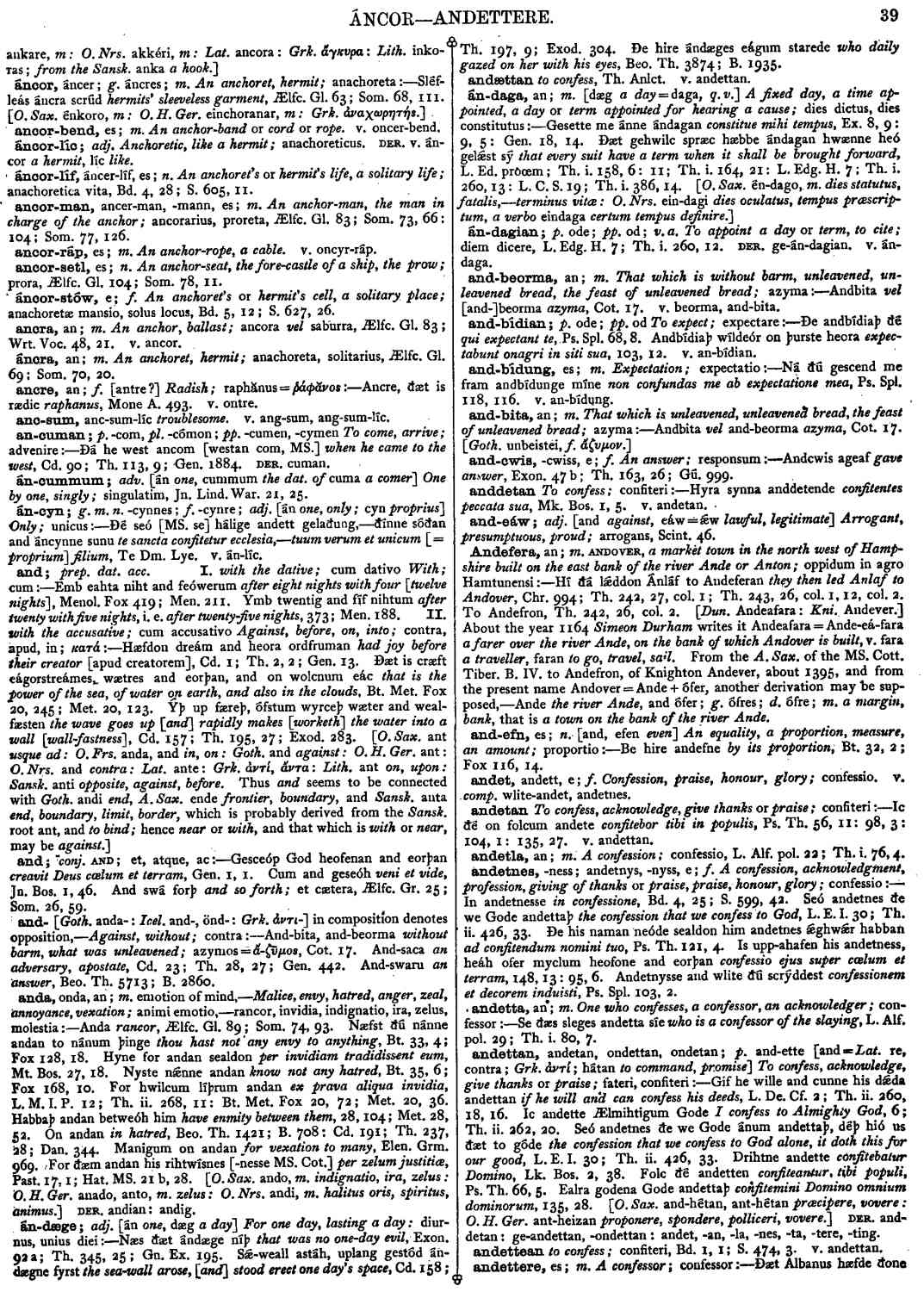án-daga
- noun [ masculine ]
-
Gesette me ánne ándagan
constitue mihi tempus,
- Ex. 8, 9: 9, 5 :
- Gen. 18, 14 .
-
Ðæt gehwilc spræc hæbbe ándagan hwænne heó gelǽst sý
that every suit have a term when it shall be brought forward,
- L. Ed. proœm ;
- Th. i. 158, 6: 11 ;
- Th. i. 164, 21 :
- L. Edg. H. 7; Th. i. 260, 13 :
- L. C. S. 19; Th. i. 386, 14 .
Bosworth, Joseph. “án-daga.” In An Anglo-Saxon Dictionary Online, edited by Thomas Northcote Toller, Christ Sean, and Ondřej Tichy. Prague: Faculty of Arts, Charles University, 2014. https://bosworthtoller.com/1669.
Checked: 1